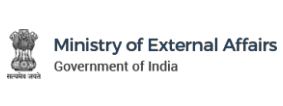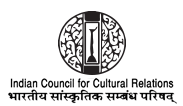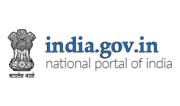New Delhi
January 25, 2009
My Dear Fellow Citizens,
Tomorrow, we will be celebrating our 60th Republic Day. I extend my good wishes to our citizens from all walks of life, living in the country and overseas. I convey my special greetings to the members of our Armed Forces and Paramilitary Forces who guard our frontiers on land, sea and air. I also extend my greetings to the Central and State level police forces, including our internal security forces. Today is also an occasion to pay homage to those who laid down their lives for the safety and security of the nation. We owe a deep gratitude to them.
For six decades we have been a democratic republic and have been guided by the principles of justice, liberty, equality and fraternity. The 60th milestone is marked with the many successes that we have achieved in different fields, and a host of issues that need our attention. We can look at our achievements with justifiable pride and focus on our shortcomings with a spirit of resolve. It is the manner in which we address the challenges we face that will determine the destiny towards which our nation is steered.
We have witnessed, in the last one year, major events in the financial and security scenario both at the global and the national level - terrorism and violence, natural disasters, volatility in oil and food prices, and a global economic slowdown. These tested the inherent structures and systems for dealing with emergent situations, throwing up challenges of addressing inadequacies and highlighting the need to reinforce monitoring and response mechanisms.
In the terrorist attacks in our cities and in different States many innocent lives were lost. The concerted and well planned attacks in Mumbai stand out as an example of a ruthless operation undertaken to damage the confidence of India. The nation was outraged. However, contrary to what the terrorists had hoped, the event saw the emergence of a unified and strong voice from India. The elections that were held after the Mumbai attacks to the Legislative Assemblies of some of our States, including Jammu and Kashmir saw a large voter turnout, reaffirming the faith of the people of India in a democratic polity. Unity is our greatest strength. It is that unique amalgam which transforms the over one billion individuals of the country into an over one billion strong resolve of one nation. It is this unity which has seen us through difficult times and is what we must preserve as we seek to fulfill our national ambitions and goals.
One of the priority tasks faced by us is to secure the nation against terrorist and fundamentalist elements. Government has put in place a new agency to deal with terrorist threats and has also brought in legislative changes. A determined, coordinated and concerted approach by all agencies to tackle this menace would be necessary. Our security personnel can be confident that every citizen of India is with them as they take action to safeguard our borders and secure our safety and security within the country. I call on fellow citizens and the media to be a part of this security network. This entails responsible behaviour in which we are aware of our surroundings, and do not inadvertently create an atmosphere of fear or insecurity.
Our Constitution is our charter of democracy and of the rights of the people. Individual freedom and dignity is guaranteed under the fundamental rights included in the Constitution. Universal franchise has given to the citizens the right to determine their political choices. The development process itself is becoming an increasingly participatory activity. The Right to Information Act provides citizens a channel to seek accountability in governance. All this places the citizen at the centre, in terms of the recipient of the benefits of the growth of the nation and as also the key player in shaping the growth process. For success to be achieved each one has to play his or her part. Gandhiji used to emphasize that, "it is in this spirit that each one of us should act." I am confident that all citizens will perform their duties towards the nation in accordance with the wise words of the Father of our Nation. Hard work, grit, determination and perseverance of its population are the brick and mortar of nation building, which itself is a complex task. I mention this because at times, cynical views have been expressed, ignoring that it was the will and sacrifice of our people that defeated a mighty colonial power and there is no reason to doubt, that with determination and dedication we will become a mighty nation.
I believe each one of us is a proud Indian, willing to work for the nation but the question is how do we bring about unison in our efforts? It cannot be through the following of a narrow agenda. We cannot give in to regional, sectarian or caste considerations. These concepts militate against the very principles we chose to follow when we began our journey as a free nation. All Indians, undoubtedly, have many identities but with an underlying common identity of being Indian. We may hail from one region but belong to a different caste or religion or speak a different language, but that cannot dilute our Indian identity. That identity in essence means a civilizational ethos of a shared experience of living together in harmony through generations, in a milieu of great diversity but in a spirit of tolerance and forbearance, that flows from our basic belief of unity. The incidents of violence by one community against another can have no place in a pluralistic society. I appeal to my fellow citizens to vow that they would fight divisive agendas and work for an India in which our first identity is Indian and, only thereafter, our other descriptions follow.
My fellow citizens,
The slowdown of the global economy, triggered by the actions of some credit and banking institutions has resulted in a crisis of confidence all around. The need for strengthening oversight mechanisms for financial institutions and for rules which are clear, transparent and uniformly applied is being acutely felt. Some companies that over-extended or functioned in an unethical manner have caused losses to shareholders. Such incidents profile the need for stronger corporate governance. There must be clear principles of accountability when such losses take place. The richness of a few cannot be at the cost of depriving others of their due. The traditional Indian ethics emphasized saving wisely, investing productively and not borrowing more than the capacity to repay. These hold valuable lessons for the business world. As Governments take necessary domestic measures to ensure that financial institutions and companies adhere strictly to high standards and conduct, it should be accompanied with greater international co-operation so that there is coordinated action in this regard. The need for having an inclusive international financial architecture cannot be over emphasized. India will bring to the global discussions considerable weightage and meaningful contribution for a more credible and viable financial structure. The instances of financial imprudence, which can put global welfare at jeopardy, cannot be allowed to happen again.
India has been impacted by the global environment. However, our economy has the fundamental strength and resilience to remain on course for economic growth. The global financial crisis can be an opportunity to reinforce the structures of our domestic economy. Government has announced monetary and fiscal stimulus packages to increase liquidity in the market and encourage investments. We have a very large domestic market and by increasing the purchasing power capacity of all sections of society, our economic development can be stimulated. We could even be one of the nations who can act as an engine to help revive the global economy.
Economic development serves a social purpose when it is for the welfare of the people. It is our effort to work towards providing education, health and better living conditions for the poorest of the poor and the weakest of the weak. We have made progress in the last 60 years but our task is not yet completed. We have to continue our efforts if we are to achieve the goal that we have set for ourselves to become a developed country.
We are seeking to address inequities in the growth process through an inclusive approach that brings within its ambit all regions and all peoples. This assumes even greater importance in these difficult days of economic stress. Economic opportunities should also be accessible in the remotest areas. We should expedite development of our basic infrastructure in the country, including in the North Eastern region. The poor and the disadvantaged people need to be drawn into circles of growth, to avoid their alienation from the mainstream. Welfare and development schemes implemented in earnest can bring about tangible difference to the lives of the people. Development partners, working with the utmost commitment and without the taint of corruption, can be the agents of change. Improvement in the human development parameters is important to create a productive work force and an enriched society. It is Gross Domestic Product along with welfare of the people that are the twin pillars of a progressive nation.
Rural development can be a very effective vehicle for spreading the benefits of balanced growth. The global spike in the price of food grains last year, and the resultant fears of shortages and hunger, carries the message that the nation must, at all times, be focused on its agriculture sector and food sufficiency. Improvement of agriculture through better and scientific agricultural techniques would contribute to the food security of the country. We have a rich heritage of agricultural practices like land use, cropping patterns and use of manure. We can also appropriately use this reservoir of traditional knowledge in our agriculture sector. Locating food processing industries close to our rural areas can, while avoiding tremendous losses in agricultural produce, be useful for generating employment options for our rural youth. By strengthening our agriculture economy, we can bring about the upgradation in this sector, and also create internal economic demand, through enhanced incomes of the farmers. Thus our agriculture sector can act as a catalyst for stronger and sustainable growth.
Many countries of the world have greatly benefited from their forests. Similarly, we must look at better management of our forests, which have a wide diversity of flora and fauna including medicinal plants. They can be important in generating social, economic and environmental benefits for the country. We have adopted legislation for recognizing habitation and occupation rights of forest dwellers. It is important to build their capacity for undertaking forest based enterprises in a manner that while they use forest resources they preserve forest health and conserve its wild-life and bio-diversity.
My fellow citizens,
On the social welfare agenda, I would like to highlight two groups that constitute a major part of our population -youth and women. India is a young nation from a demographic point of view. The youth represent the hope for the future and are an invaluable asset to the nation. Their hopes and aspirations for growth and prosperity are indeed the aspirations of the nation itself. Productive employment generation prospects can be created through skill development and vocational training. I call on our youth to take advantage of opportunities that are available to them. In addition to self- development, they must pledge to abjure violence and work for the welfare of humanity. I would be amiss if I did not mention the laurels that the youth have brought to the nation in the field of sports in the recent past. The Olympics in Beijing last year saw medals being won by Indians. This, alongwith the commendable performances at various sporting events around the world, is significant. They, perhaps, signal that we are at the beginning of a more fulfilling era in international sports. A focus on providing facilities and encouragement to our young sportspersons is necessary.
As the first woman President of India, there is a natural empathy that I have for the women of our country. I am conscious about the constraints and difficulties that they face in realizing their full potential. Their empowerment is necessary and that can only come through education and economic development. A woman has a right to live with dignity and a right to be an equal citizen of the country. I have set up a Committee of Governors, to suggest steps to move forward rapidly on the agenda of gender equality. Government has introduced gender budgeting. It should be adopted by every Ministry, every Department and all State Governments for promoting gender equality. These initiatives alongwith other efforts to make women effective partners in our national life, should converge into a national mission for empowerment of women. Self Help Groups have proved to be effective vehicles for the economic transformation of women. It should be our endeavour to bring every eligible woman under the cover of a Self Help Group for her economic empowerment. We also need to address the gender bias prevalent in our society which has resulted in social malpractices like female foeticide, dowry, child marriage and other evils. With a view to make society sensitive towards the girl child, the "National Girl Child Day" will be celebrated on 24th January, from this year onwards. Civil society and the media can also play a very important role in changing mindsets and I call upon them to do so with drive and commitment.
Malnutrition among women and high infant mortality are intrinsically linked to affordable medical facilities reaching the common man. Growth in the country should get reflected in reducing malnutrition. Programmes like the National Rural Health Mission require the medical fraternity to come forward in larger numbers to serve humanity in the highest traditions of that noble profession. Older people require medical care, which should be catered for alongwith their other welfare needs, including security.
Fellow citizens,
Technology plays a very important role in the progress of mankind. Its use in improving communication systems is evident. Scientists are exploring new frontiers in the medical field. The launch of Chandrayaan-I has made every Indian proud. Our efforts at collaborating with the international community to reap the benefits of technology for the welfare of the nation continue apace. The concluding of the nuclear civil cooperation agreement has made India a participant in the international regime for nuclear energy. Moreover, its finalization was an expression of confidence by the international community in India. We will make every effort to augment and diversify our energy options. Technology should be used to counter terrorist threats to the nation. We should be far ahead of the terrorists who are increasingly using sophisticated technology to carry out their violent agenda.
As a responsible nation, the conduct of our foreign relations since independence has been to promote peace and development. We are, however, located in a region which harbors the epicenter of terrorism. We have been victims of terrorism over the last two decades. The international community must take decisive and united action against terrorism, which poses a grave threat to the stability of the world. No country can afford to take an ambivalent attitude in this fight. Arguments that terrorism is being perpetuated by independent actors are self-defeating and cannot be accepted. Countries must own up their responsibilities as must the international community in defeating terrorism.
I conclude with an appeal to all citizens to bring forth their very best to serve the nation. India has the privilege of being a great civilization; today, it is the world's largest democracy and its people have the commitment to fulfill the promise of it being a great nation. I quote a line from a known Hindi poet, to describe our wish for the nation:
As our tri-colour flutters high in the sky tomorrow, let each one of us take a pledge to bring glory to India and take our country to its destination of becoming a great nation that stands for human values.
Jai Hind.







